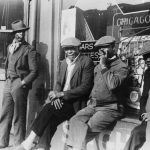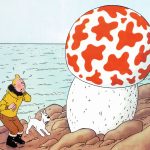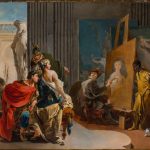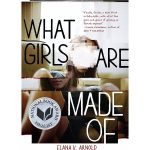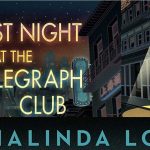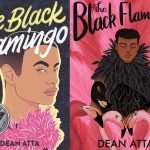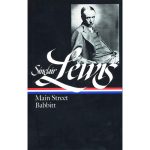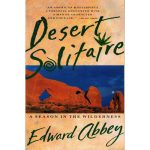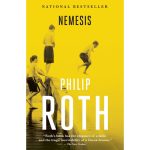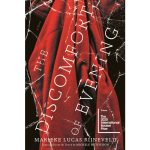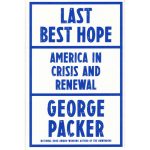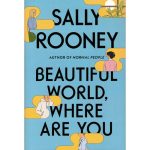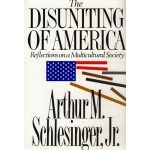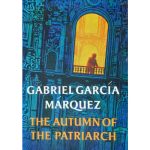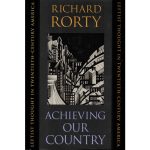In “Looking for Mr. Green,” Saul Bellow crafts a “Heart of Darkness” in Depression-era Chicago. Classically educated George Grebe hunts for an elusive check recipient, navigating a Black neighborhood Bellow depicts as a “blighted” backdrop. The author’s sublime prose serves a supremacist lens, reducing human beings to transactional props for Grebe’s enlightenment.
Byblos
Saturday in Byblos:
Saturday in Byblos
Claptrapped in the Underworld: Karl Ove Knausgaard’s ‘Morning Star’
Karl Ove Knausgaard’s “The Morning Star” following nine interconnected Norwegians over two sweltering August days, using a sudden celestial event to explore the boundaries of life and death. The narrative is addictive and atmospheric but devolves into incoherent theological meanderings and dangling plot threads. Knausgaard proves to be a masterful architect of labyrinths but an ultimately unsatisfying guide through them.
Saturday in Byblos:
Henry James’s ‘Special Type’ and the Ethics of Exploitation
Henry James’s 1900 story “The Special Type” is basically Dear Abby for its time, highlighting class-rancid exploitation through the kind of modern elitism anyone would recognize today: Commodifying human beings is not a corporate invention.
Saturday in Byblos
Getting to Know Karl Ove Knausgaard
Karl Ove Knausgaard’s “My Struggle” is a polarizing masterpiece of autofiction, blending mundane details with profound existential dread. Despite his flat style and occasionally tedious philosophical tangents, Knausgaard’s uncompromising honesty regarding family, addiction, and self-loathing creates a bewitching, page-turning intimacy as he ennobles the ordinary. His place as a Scandinavian literary giant seems assured even as he tests the reader’s patience with his massive scale.
The Big Read:
Deconstructing J.D. Vance’s Hillbilly Fictions
When J.D. Vance went from calling Trump “America’s Hitler” and calling himself a Nevertrumper to calling him a man of “extraordinary vision” as he accepted the nomination for vice-president, the apparent change was mistaken for the apotheosis of an opportunistic pivot and a betrayal of his memoir’s affective nuances. But it was in fact the reflection and perfection of a skill Vance displayed throughout “Hillbilly Elegy,” where he constructed a persona scaled to a chameleon’s tongue. The book is the Rosetta Stone of the Vance we see today.
On Flagler’s Ban List: Elana K. Arnold’s What Girls Are Made Of, a Review and a Recommendation
“What Girls Are Made Of,” Elana K. Arnold’s deconstruction of a 16-year-old girl’s being and nothingness, is one of 22 titles three Flagler County residents want banned from high school libraries. A Flagler Palm Coast High School committee takes up the challenge on Thursday.
Challenged in Flagler Schools: Malinda Lo’s Last Night at the Telegraph Club, a Review and a Recommendation
Malinda Lo’s “Last Night at the Telegraph Club” is among the 22 books that a trio of “moms for liberty” have sought to ban from high school library shelves. A joint committee of Flagler Palm Coast and Matanzas high school faculty members and parent representatives meets on March 7 to decide whether to retain it or ban the book. The following review is presented as a guide.
Book Challenge in Flagler Schools: Dean Atta’s ‘The Black Flamingo,’ a Review and a Recommendation
Dean Atta’s “The Black Flamingo” is among the 22 books a trio of individuals have sought to ban from high school library shelves. A joint committee of Flagler Palm Coast and Matanzas high school meets today to decide whether to retain it or ban it. The following review is presented as a guide.
Americanisms: Sinclair Lewis’s Main Street and Babbitt
Today we read the Sinclair Lewis of “Main Street,” “Babbitt,” “Elmer Gantry” and “It Can’t Happen Here” not for literary value but the way Margaret Mead studied the Balinese character–for ethnographic insights. Lewis’s novels are a window into an America not nearly as dated as his reputation.
Eulogy for Nature: Edward Abbey’s Desert Solitaire
Edward Abbey’s “Desert Solitaire,” published in January 1968, worthy of any top-100 list of the best books of the last hundred years and an essential read–and re-read-today, is a meditation, a polemic, a manifesto, a provocation, a valentine and an elegy to the red desert and to American wilderness.
God’s Plagues: Philip Roth’s Nemesis
Philip Roth’s “Nemesis” is the story of an unsuspecting Everyman who becomes a polio superspreader and turns on his fiancee, God and life. Written in 2010, the novel can be read in the age of the coronavirus as a study in grief and loss and the limits of personal, or divine, responsibility.
Trump Troll Chronicles: Bob Woodward’s Peril
Bob Woodward’s and Robert Costa’s “Peril,” third in the trilogy of Woodward’s books on the Trump administration, isn’t history. It’s most revealing in what it does not say. It’s tragicomedy. It’s a chronicle of trash foretold. And it’s prediction. The worst is ahead.
Crusaders: Bob Woodward’s Bush at War
Even by Woodward’s standards, this is much less a journalist’s book than a White House manifesto, a managed reconstruction of recent events not for the sake of telling the story of those events, but as a projection of events to come. What B-52s do to soften up enemy ground ahead of a military invasion, Bush At War is doing to soften up Bush’s coming war on Iraq and possibly more.
Call DCF: Marieke Lucas Rijneveld’s The Discomfort of Evening
Marieke Lucas Rijneveld, who now goes by the pronouns they/them, won the International Booker Prize for “The Discomfort of Evening,” an autobiographical novel about a 10-year-old girl who thinks she willed the death of her brother, and who watches her family and her bearings collapse after his death. The book caused a controversy due to themes of adolescent sexuality and animal torture.
Liberal Flagellant: George Packer’s Last Best Hope
George Packer’s “The Last best Hope,” published in June, attempts to explain how the United States devolved into the furies of Donald Trump’s last year–the pandemic, the BLM marches, the Jan. 6 insurrection–by diagnosing four separate Americas that no longer communicate. It’s a dour, guilt-ridden book by a liberal looking for penance in all the wrong places.
A Bit Less Normal: Sally Rooney’s Beautiful World, Where Are You
The young, argumentative and Irish Sally Rooney is among the rising lights of English-language literature. She’s giving the novel of ideas a boost. The impulse her works command reminds me of the old E.F. Hutton commercials: “When EF Hutton talks, people listen.” Her third novel, “Beautiful World, Where Are You,” is her most ambitious and least accomplished.
Our Thirty Years’ War: Schlesinger’s The Disuniting of America
What historian Arthur Schlesinger had detected in 1992 in a few trends is now orthodoxy–from both sides, neither for the better. The “ethnic rage” of diversity-preaching liberals and the fundamentalist, doctrinaire “monoculturalism” of conservatives has the country in a state of paralysis. Schlesinger wanted a renewed melting pot. But that’s not the solution.
The Loneliness of a Dictator: Garcia-Marquez’s Autumn of the Patriarch
Autumn of the Patriarch is a study in power unbound, unscrupulous, re-imagined rather than invented. History gave Garcia-Marquez too much material to need invention. Approaching 50 years since the novel published, it has recently come to feel more contemporary again.
Patriotism Recovered: Richard Rorty’s Achieving Our Country
“Achieving Our Country” is an energizing manifesto, a reminder that we are not as good as we think we are, and, atrocious as we can be, not nearly as bad, either. We are merely unachieved. With a little less despair, a little more affection, even–heaven forbid–a bit of patriotism, however defined but equally respected we can achieve more.




